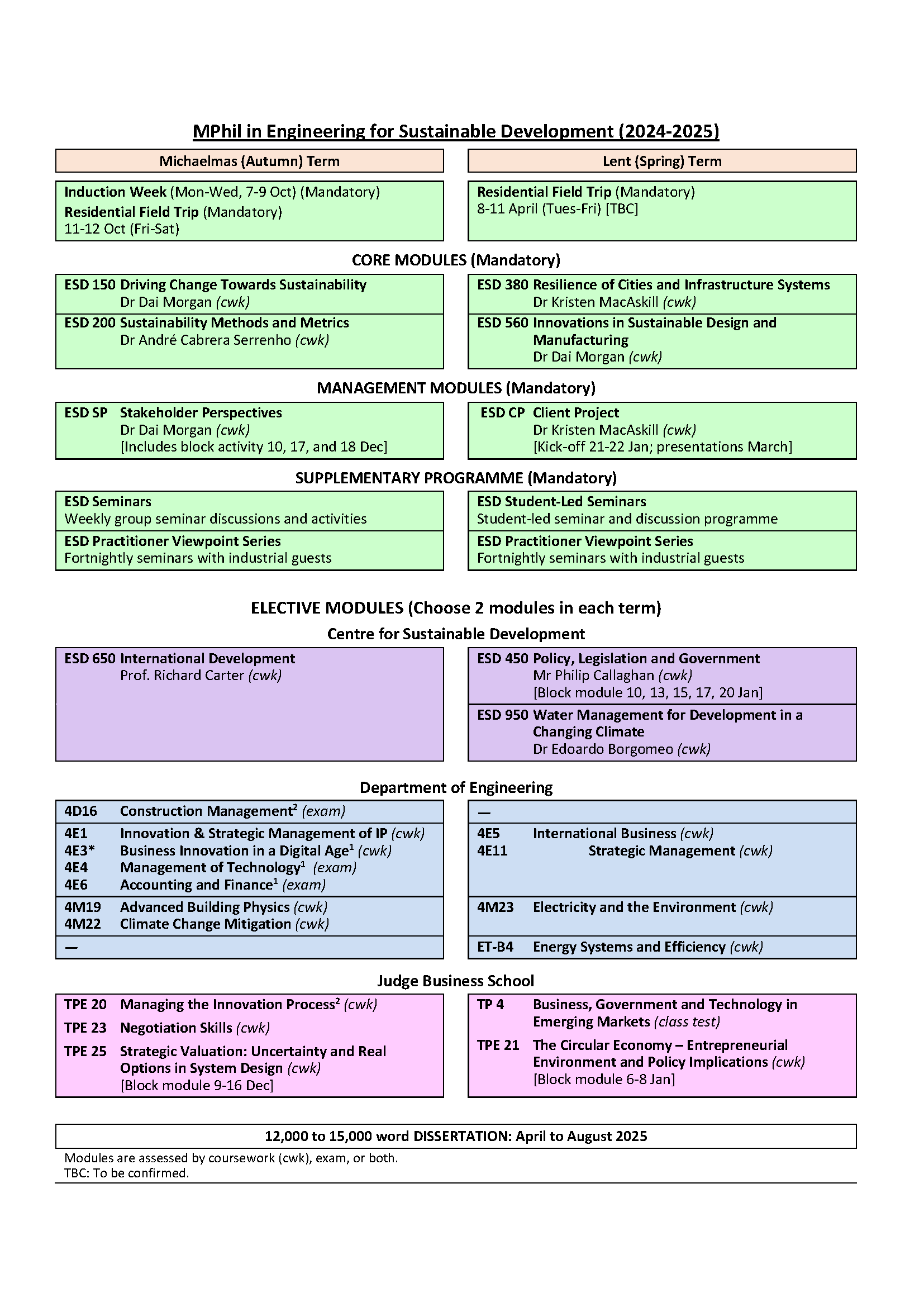ESD 150: Driving Change Towards Sustainability
Leader: Dr Dai Morgan
Timing: Michaelmas term 2020
Structure
- Eight 2-hour sessions in weeks 1 to 8
- Coursework assignments
- Personal change challenge
Synopsis
The emphasis in this module is on how individuals can take personal responsibility to deliver real change in personal, organisational and systems contexts through engagement in a range of formal and informal processes. The course content covers qualitative issues, such as personal vision and motivation; change frameworks; and leadership and ethical positions, and will explore case studies of real change and draw on the experiences of the class. The course will also be supplemented with industry perspectives provided through the Practitioner Viewpoint series.
Key Themes
- Dealing with complexity requires a systems approach
- Dealing with change by challenging orthodoxy when it is rooted in 20th-century criteria
- Dealing with people through consultation processes and negotiation.
Content
Review drivers for sustainability (climate change, resource depletion, population growth, biodiversity loss, pollution, economic imbalances and poverty) and complex system-level pressures (global, social, environmental, economic and ethical challenges). Examine social, government and technology responses (consumer behaviour, policy responses and engineering responses) and explore network governance.
Strategy and change management for sustainability, theories and concepts about organisational structure and change (e.g., top down vs bottom up, machine vs organism, power structure), and roles of individual change agents. Embedding sustainability in organisations, taking leadership roles. Participating in a personal change challenge to gain experience through action learning.
The role and value of ethics both collectively, in engineering organisations and professional institutions, and individually; trends towards greater transparency, accountability and sustainability reporting.
Learning Objectives
The learning objectives for ESD 150 are also supported through the Seminar Programme and other related activities, including the Self-Reflective Learning Logs.
By the end of the course, students should be able to
- Develop appropriate arguments for sustainability-related action
- Use appropriate frameworks and tools to develop actionable strategies for change
- Identify their personal role in driving change towards more sustainable outcomes.
Students will be given the opportunity for experiential learning through acting as a change agent and will be expected to
- Describe qualitatively and quantitatively (as appropriate) their change experience
- Critically evaluate the action and outcomes
- Extract learning that could be applied to future change activities.
Assessment: 100% coursework
Indicative items (may vary from year to year): two submissions covering
- An organisational change strategy
- A reflection on the personal change challenge.
NB. Coursework submissions are intentionally open ended, in some cases allowing the freedom for students to adapt briefs to reflect their own engineering backgrounds, interests and aspirations. Assignments should demonstrate understanding of any specific techniques or frameworks involved; clarity of argument and reasoning; novelty and originality in arriving at a response; reference to both an engineering and a sustainability context; and a reflection on the process and outcomes achieved.
Detailed criteria by which the work will be assessed are provided on the individual assignment briefing sheets issued at the start of teaching.

